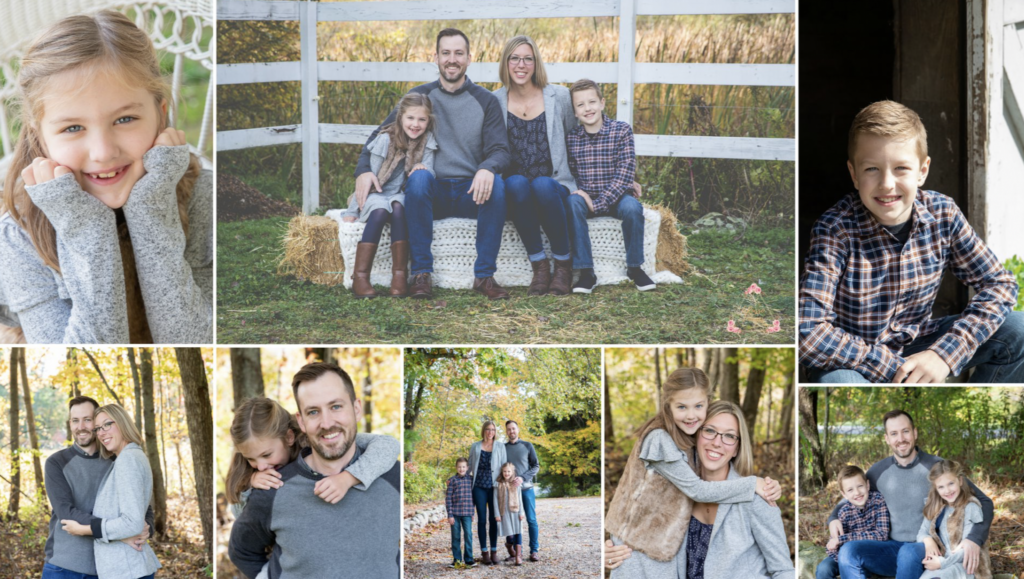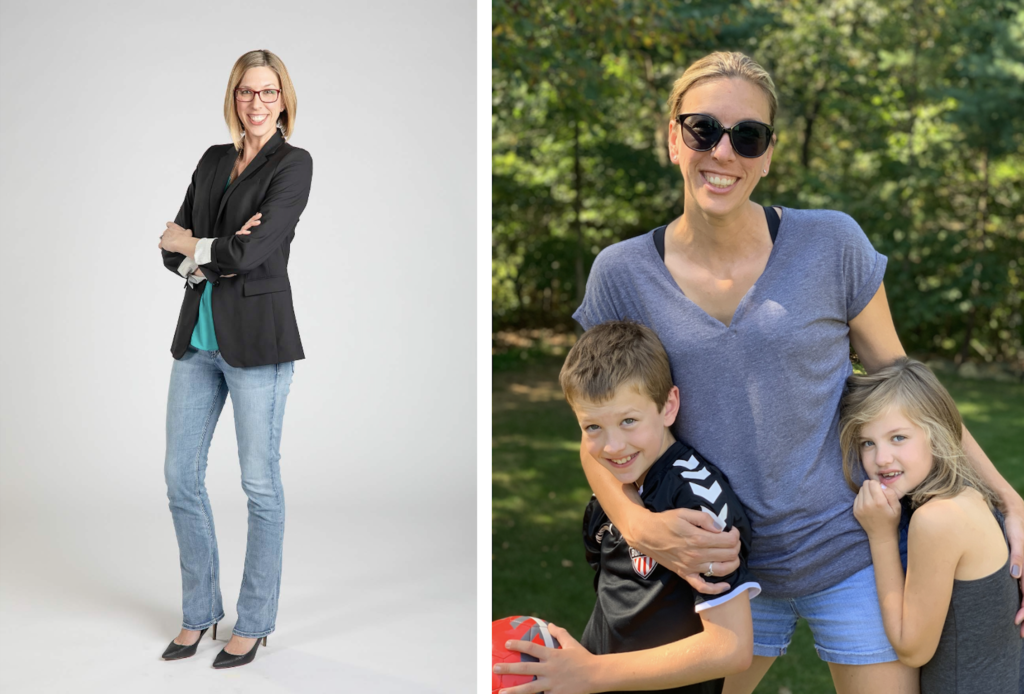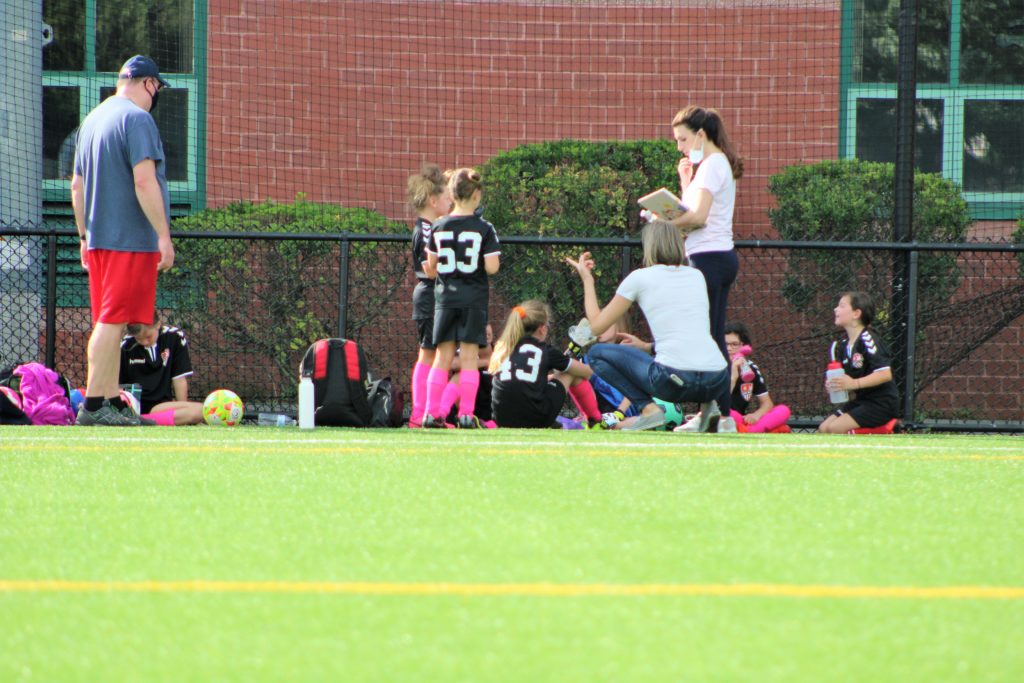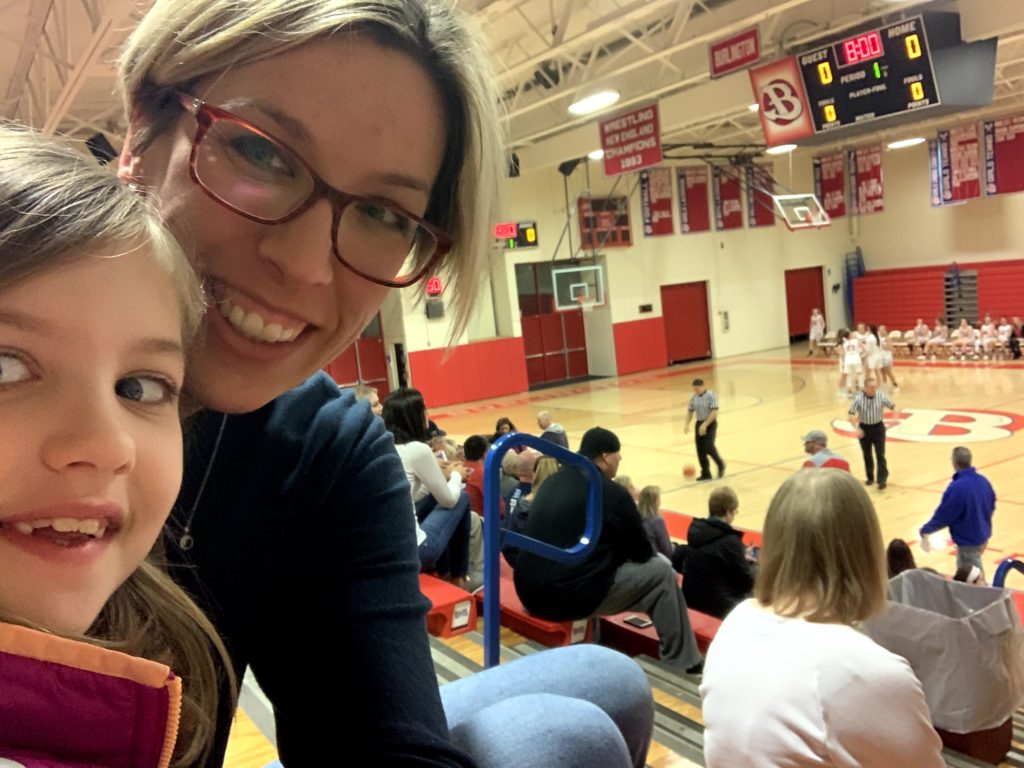Lead(H)er Profile: Lauren McCollem, Chief Marketing Officer at Hi Marley
VentureFizz’s Lead(H)er series features impressive women leaders in the tech industry. This Q&A features Lauren McCollem, Chief Marketing Officer at Hi Marley.
Where did you grow up?
I grew up in Burlington, Massachusetts, and it’s where I live now. My husband and I met in high school and have been together since. For a short stint, we lived elsewhere, but when it came to settling down, we wanted to be in a town with proximity to Boston, so we returned to Burlington. Now we’re raising a family here—two kids and a puppy. I love the people and love the location; we’re close to the city, beach or mountains, and our family lives around the corner. Burlington is a great community. I’m a townie for life!

What did you study in college and what was your first job out of school?
I was initially a pre-med/bio major and business minor. However, Organic Chemistry and I did not get along. I switched my major to Business sophomore year and transferred to Northeastern University to participate in its co-op program. This was hands down one of the best experiences; it was so much more than an internship. I worked for six months in actual business roles in Sales and Marketing, where I learned the basics of working in a professional setting. I took ownership of projects and responsibilities, had the opportunity to master new technology and was tasked with finding solutions to problems. I was held accountable for my performance in a totally different way than in a traditional academic setting, which gave me an incredible understanding of what the business world would be like post-graduation. The added benefit of earning money during a co-op period helped me get a leg up on my student loans while I was still in school. After the program, I felt prepared to enter the “real world,” I can’t say enough about Northeastern and how valuable that program is!
Can you share the details on your career path and what were the critical moments that got you to where you are today?
Growing up, I balanced being a student-athlete with a couple of jobs at a time, grabbing hours where I could around practice and game schedules. I never wanted a “desk job” because I was terrified of being bored. I was used to wearing many hats and constantly moving around.
I worked at a bakery for many years throughout high school and college. I ended up getting involved in weddings as part of the business. I handled tastings, deliveries to event venues and represented the bakery at a few wedding events and trade shows. I loved it. So, after graduation, I started to look for marketing roles involved in events, mostly because I thought it would be fun. There was no big strategic thinking coming out of my 20-something brain at that point. I thought, “wow, I get to travel and go on business trips,” and it sounded cool to me.
My first role post-college was as an event marketing manager for a software company, and I held that role for nearly five years. Because it was a small software company, I had to wear multiple hats. I traveled to about 20 events a year, managed the company’s annual user group, oversaw logistics, recruited customers for speaking engagements, handled pre-show marketing and demand generation strategies, gave demos and wrangled the sales org.
I didn’t know it at the time, but it was the best preparation I could have asked for to get into product marketing, my true passion. Product marketing requires someone who is inquisitive, understands how to handle a discovery process and is comfortable interacting with customers. You have to know your company/brand/product story, what problems you solve for your users and the ability to articulate that whether you have to write website copy or pitch it in a trade show booth.
I credit my experience in that first event role for opening my eyes to how hard it is to sell (seller empathy!), how important it is to understand customer pain points (customer empathy!) and how marketing can be the connective tissue for the organization to drive results. I look back at that time with a lot of fondness for helping me grow into a better, more well-rounded marketer.

Looking back, is this where you thought you’d be professionally? Was it always your goal to be in this position?
I’ve never had a good answer to the question, “where do you want to be in five years?” For good or bad—I don’t spend too much time thinking about my career trajectory. I tend to stay focused on the work and the opportunity I have within a current role versus thinking about my next steps. Each day isn’t promised to us, so I concentrate on what I can impact in a day, month, quarter, and that’s how I’ve approached my career.
I never thought I would be leading a marketing organization in different capacities as I’ve done for nearly ten years. But I love it. I love the challenge. One of my favorite parts of leading a team is coaching. Whether marketers early in their careers or seasoned professionals, I love encouraging my team to set goals, take on new challenges, and achieve that next step. It’s exciting to see someone grow and celebrate their success. Overall, I love seeing teams win. That’s what I’m grateful for and keeps me engaged.
For people who are looking to be in a similar position, what advice would you give to others in terms of helping them achieve their career goals?
Focus on building relationships and being a great colleague. This is how you create a network, and a good network is both a lifeline and an opportunity engine that will help you progress your career. Your network provides support when you need help, will come to you when they need help, and will think of you for open positions and new opportunities because you’ve built trust.
I’ve put effort into my relationships throughout my career, building trust by following through on my promises. I want my colleagues to know they can rely on me, and I will not let them down. Making relationships a priority has always ended up paying dividends because, aside from my first job search post-college, I have never had to really look for a role. Through my network and relationships, I’ve been referred to companies and approached for roles even when I’m not actively searching —my career progression has resulted from conversations that led to interviews, learning more about the company and people, and finding the right fit.
My second piece of advice is to always say yes, even to things that you don’t feel qualified to do. If we all waited until we were 100 percent qualified to take on any opportunity presented to us, we wouldn’t learn. Even if it is scary at times, the challenges, missteps and struggles allow us to experience new things, build new skills and grow professionally. Mistakes will happen, and that’s okay. Don’t let anyone make you believe that success is walking an always winning untarnished path. It’s not.
Are you involved with any professional organizations outside of the company? Volunteer work?
I played basketball growing up and have coached it for many years, from college through my early adult years post-graduation. I’ve coached middle school, high school and AAU teams. I took some time off from coaching to get by MBA and then didn’t go back. My job got bigger, I had less time, I had kids. It just got pushed to the side. A few years ago, I realized how much I missed it and have started coaching again at the youth level. It’s been fun to go back into the gym and help a new group of young girls work together, improve and build their confidence.
I also coach soccer, a sport I never played but started coaching once my kids were old enough to join Burlington’s Youth Soccer Association. I bought the book Soccer for Dummies and spent most of my first couple of years trying to figure out what the heck offsides were. I didn’t expect to like it, but I really enjoy it now. I love watching both of my kids progress and challenge themselves on the field.

How do you manage stress?
Oh man – truth time. Managing stress is a growth area for me. When I’m stressed, I tend to plow myself into more work because, in the back of my mind, developing a game plan and getting my to-do list done will make the stress go away. Right?!? Wrong! A thing I’ve realized about myself is that I lean on this approach because it gives me a sense of control. But the reality is, you don’t always have control, and that’s what ends up driving more stress (for me, at least).
Now, I try to recognize when I’m feeling this way. I first acknowledge it and then logically address what’s causing that feeling. Sometimes it helps to write down these thoughts because when they become words on paper, it gives me clarity, and I can see them for what they are—they are not as powerful and become much more manageable. I’ve also started to practice Yoga, and that’s been helpful. I am leaps and bounds away from being able to effectively “manage” my stress, but I’m happy with the fact that I at least am owning that. Baby steps.
How many cups of coffee do you have in a day?
Between four and six—too many. But, I always try to stop drinking coffee by lunchtime and switch to water. I am highly challenged in building healthy habits when it comes to my diet (help!). Because of it, I always end up making really lame new year’s resolutions. I’ll set a goal like “drink four glasses of water per day,” and legit can’t get it down. I’ll take any tip for healthy habit-building to help me balance out my coffee habit for something a little better!

Any book or podcast recommendations?
I have always loved This American Life podcast because I love its storytelling and the format of the short chapters within each episode. Also, how can you not love Ira Glass? For books, history books associated with WWII and the Holocaust have always interested me. I think it started in fourth grade when we all read the Diary of Anne Frank. As a child, I couldn’t understand it; even as an adult, it’s still hard to wrap my mind around the hate then and today, no matter what form factor it takes on. I recently read We Share the Same Sky by Rachael Cerrotti. It’s an incredibly well-written, powerful memoir about Rachael’s process piecing together her grandmother’s journey as a Holocaust survivor. It also has a narrative podcast by the same name.
Describe your leadership style.
One of the things that attracted me to Hi Marley is that it’s a purpose-driven organization. We are on a mission to transform the way the entire insurance industry interacts and engages with its customers. For me to be at my best – and give my company and team my best – I have to believe in the mission of a company and relate to it. Improving the customer experience is something I am super passionate about as a marketer, and having experienced the challenges first-hand with everything from updating a homeowner’s insurance policy to managing through a claim after a car accident, I could see the impact of what we are bringing to market. Getting the opportunity to work alongside people building great products that their users love is a dream scenario for any marketing leader.
While I’m no stranger to companies experiencing rapid growth, Hi Marley is my first start-up company. As a start-up, things move quickly. That’s why transparency and open communication are essential —I always want my team to feel informed and have an opportunity to share feedback. I want the team to understand the “why” so they can understand how their contribution has an impact, not just within Marketing but the company as a whole. I encourage my team to try new ideas and take measured risks; when you share the bigger picture, it levels up your team’s strategic thinking capabilities. Great ideas come from anywhere in the organization, but you have to arm your teams with the ‘why’ and the context to nurture those great ideas so they can actually take flight.
Our company promotes a culture of humility, empathy and openness to learn from anyone. Our marketing team is small but mighty, and we’re always learning from each other. We’re collaborative marketers who aren’t scared to roll up their sleeves, bring new ideas, find ways to keep improving and drive measurable results.